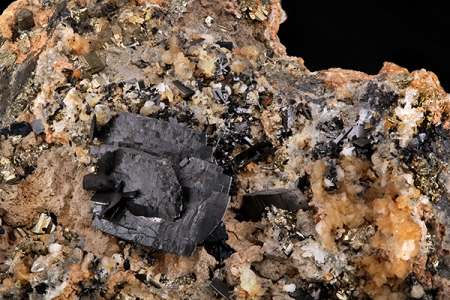You are here
Responsible sourcing of minerals - Where are we now?
The responsible sourcing of minerals remains an important subject for both policy-makers and industry alike. With this in mind AmCham EU recently held a workshop on the topic of responsible sourcing, with experts from the Organisation for Economic Cooperation and Development (OECD), the European Commission and the European Partnership for Responsible Minerals (EPRM) offering insight on the latest developments in this area.

Conflict minerals originate from politically unstable areas, where armed groups often use forced labour to mine raw materials to fund their activities. Profits from such operations are often used to buy military supplies and perpetuate instability. These conflict minerals, such as tin, tungsten, tantalum and gold, also commonly referred to as 3TGs, are found in many everyday products.
International action has attempted to eliminate the penetration of conflict minerals into the supply chains of producers, raise consumers’ awareness about the products that they buy and ultimately dry-up a source of income for armed conflicts, violence and human rights abuses.
The OECD has been at the forefront of these efforts and has several ongoing initiatives promoting the responsible sourcing of minerals. Building on the organisations Due-Diligence Guidance, published in 2016, the Alignment Assessment Project seeks to align the standards and implementation efforts of industry programmes with the recommendations of the Guidance. The first results of the programme are expected to be published at the beginning of 2018. Alongside these efforts, the OECD is currently preparing the release of its ‘Handbook on risks associated with production and trade of natural resources’. The handbook aims to help companies identify the risks related to the trade and production of minerals and support mineral supply chain due-diligence.
Meanwhile, the EU has been implementing its own measures. In June 2017 the ‘Conflict Minerals Regulation’ entered into force. While it will only apply to EU importers as of 1 January 2021, it seeks to transpose the OECD framework into EU law and provide a framework for action. The regulation will make due-diligence mandatory for EU importers of 3TG minerals where annual import volumes exceed certain thresholds. Different to other conflict mineral legislation, such as the Dodd-Frank act in the US, the EU’s conflict mineral regulation will have a global scope, meaning that importers will have to undergo due-diligence irrespective of the origin.
The EPRM, a multi-stakeholder partnership of policy-makers, industry and NGOs promoting responsibly produced minerals, provided practical industry insight in the fight against conflict minerals. By increasing awareness and providing support for downstream actors on due-diligence, coordinating links between users and supporting in-region activities, the partnership focuses on the entirety of the value chain.
While there is still a way to go before conflict minerals are completely eradicated from value chains, stakeholders are taking concrete steps in the right direction. Industry in particular has been a strong advocate for the promotion of sustainable sourcing of minerals and continues to be the driving force behind many international initiatives.
By Florian Gleissner, Policy Adviser (FGL@amchameu.eu)
